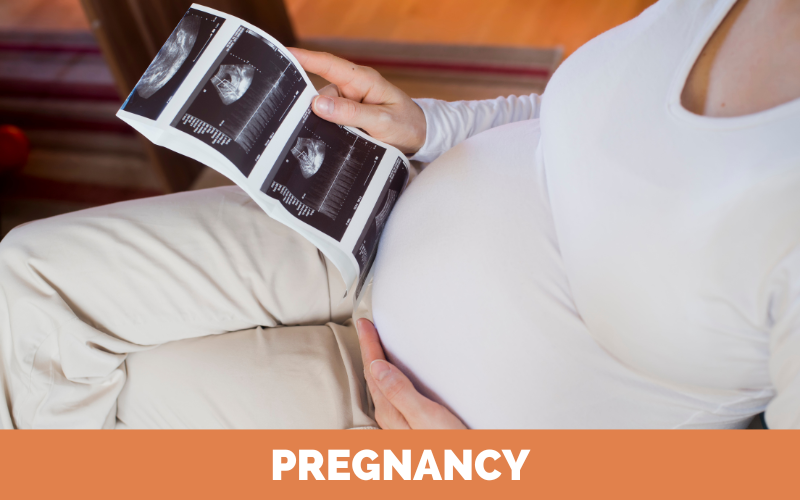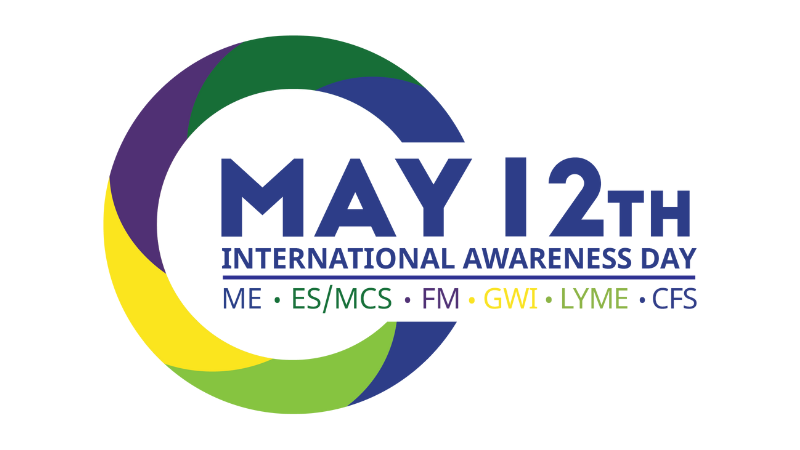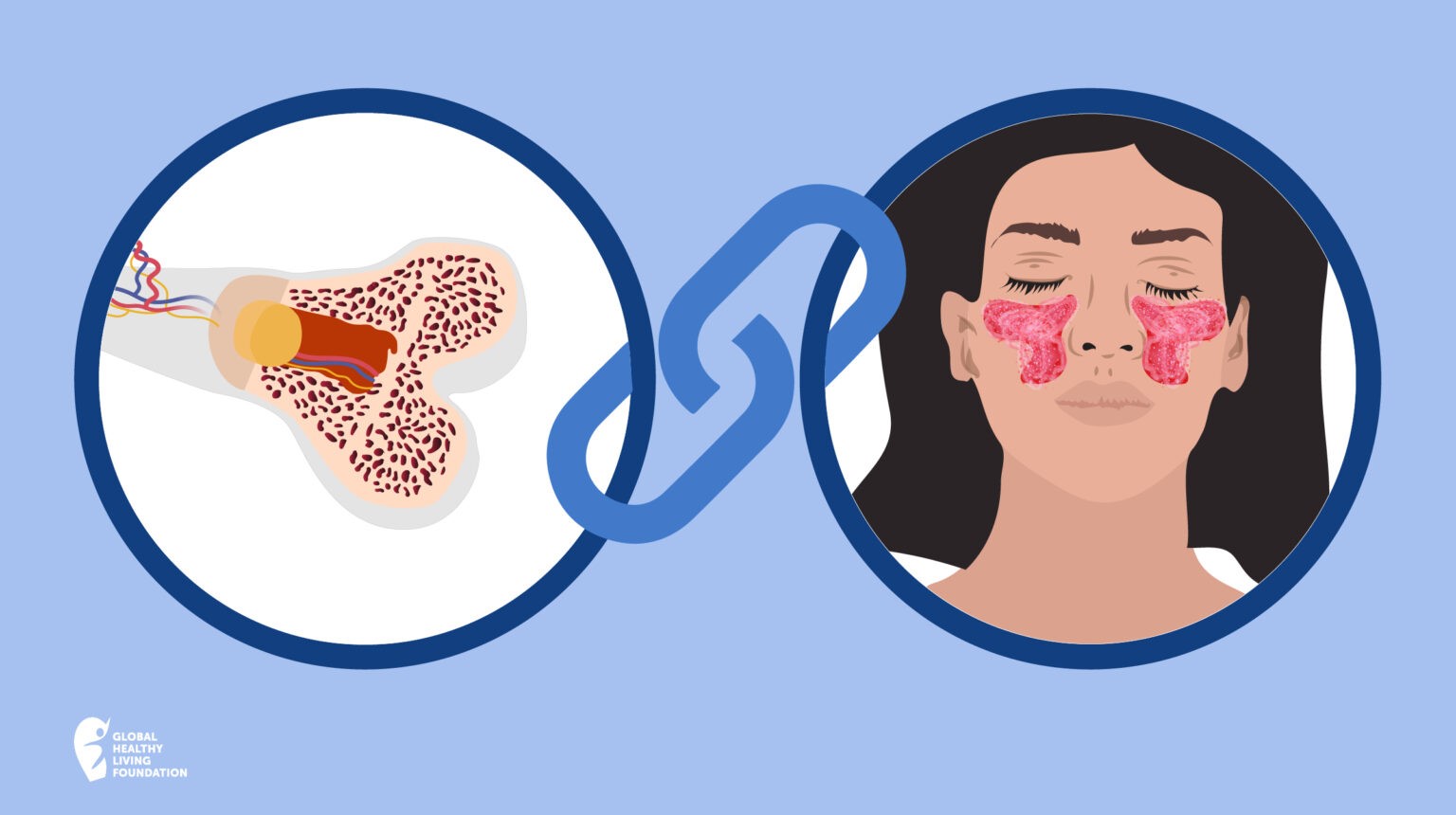Helpful Links
Australian Breastfeeding Association
Australian Government Department of Social Services: Families and Children
Australian Rheumatology Association: Medications and Pregnancy
Australian Rheumatology Association: Pregnancy Prescribing Information
CreakyJoints Australia: Government Support Information
CreakyJoints Australia: Health and Community Services Information
Family Planning Alliance Australia
Healthy Bones Australia: Pregnancy and Bone Health
Musculoskeletal Australia: Personal stories of mothers living with RA
National Disability Insurance Scheme
Occupational Therapy Australia
Pregnancy, Birth & Baby
Raising Children Network: Parent and Family Services
Trans Hub: Pregnancy
Non-binary Pregnancy and Parenting Support: Facebook group
Parenting with Rheumatic Diseases
How do you manage your rheumatic disease symptoms and look after a child at the same time? Our tried-and-true tips will help you balance managing your symptoms with meeting their daily needs.
Caring for a newborn is both exciting and challenging for just about every new parent! But let’s face it. Babies are hard work. So, what happens when you* also need to deal with the pain, joint swelling or stiffness, fatigue and other symptoms that come with having a rheumatic condition? Do you have to put your needs aside to focus on theirs?
The short answer is no. It’s quite the contrary. When your symptoms are as under control as possible, you’ll be in a better physical and mental state to give your child the care they need. The key is to not get hung up about what you think perfect parenting “should” look like. Instead, be prepared to be flexible about how and when things get done as long as they achieve your desired outcomes without hurting anybody.

Treating Postpartum Flares
While some people with rheumatic diseases experience remission while they are carrying a child, we can’t predict how long that will last after their baby is born. Regardless of whether you experienced remission or not, your condition could flare one to six months after delivery.
This may be the last thing you want to experience as you are trying to care for your newborn. Even with help from your partner, friends and family or a professional home support person, caring for a new baby means lifting, carrying, stooping, bending, changing nappies, holding the baby during feedings, bathing and other physically taxing tasks.
Postpartum flares occur in about 50 per cent of people with RA who have given birth, so plan to meet with your rheumatologist soon after delivery. To reduce your chance of having a postpartum flare, your rheumatologist will help you go over your options to add or continue disease-modifying antirheumatic drugs (DMARDs) and other medications.
Occupational therapists can help you identify the tasks you find challenging — either due to your condition or looking after a child — and find other ways to manage them.
Treatments can ease inflammation and get your flare under control. However, you may be concerned about whether or not your treatments are safe to take during lactation or breastfeeding (also called chestfeeding). Many treatments for rheumatic diseases are safe to use while you are breastfeeding. Your rheumatologist should be able to create a treatment plan for you that will not put your baby at risk. However, every drug has its own risk profile for use during either pregnancy or lactation.
Breastfeeding Pros and Cons
Deciding whether to breastfeed your baby is a personal decision for you (and your partner, if applicable) to make.
You can talk with your treating doctor or your baby’s paediatrician about any concerns or questions you have about breastfeeding, and other options you have if you choose not to breastfeed. You might choose to use pumped breast milk or formula and feed your new baby by bottle. You can also try breastfeeding for a time, and then switch to formula later.
It’s up to you to decide how to feed your baby. When you have a rheumatic disease like rheumatoid arthritis (RA), psoriatic arthritis (PsA), lupus or ankylosing spondylitis (AS), you may have joint pain or damage that makes it hard to hold your baby when you feed them multiple times a day. If you’re having a flare, you may not feel up to breastfeeding during that time.
However, there’s no reason why new lactating parents who have rheumatic diseases can’t breastfeed if they’re not taking any medications that could be harmful to the baby.
Benefits of Breastfeeding
- Breast milk is a safe, natural food for your baby. It contains healthy antibodies and hormones that help your baby build up its immune system.
- Colostrum, the thick, yellowish fluid you produce in your breasts at the start of nursing, contains nutrients that help your baby fight off infections.
- Research shows that breastfeeding your baby your own milk can reduce your baby’s risk of developing health problems like asthma, diarrhea, ear infections, eczema, lower respiratory infections, SIDS, some paediatric cancers and type-2 diabetes.
- Children who were breastfed are less likely to be obese.
- Breast milk may also reduce the risk of certain childhood cancers like leukemia, and maternal cancers such as uterine, ovarian and breast cancer.
- Breastfeeding may help nursing parents lower their risk of diabetes and certain cancers. It may also help you lose weight after giving birth because it burns calories.
- Breastfeeding helps nursing parents by reducing the risk of postpartum haemorrhage. When you breastfeed, your body produces hormones that cause uterine contractions, encouraging it to return to its normal size. This prevents haemorrhage in the first few days to weeks after childbirth.
There are psychological benefits to breastfeeding too. According to the American Academy of Pediatrics’ “New Mother’s Guide to Breastfeeding: 2nd Edition” published in 2015, the act of breastfeeding — holding your baby close to your body — can make your new baby feel safe and protected. You also release hormones during breastfeeding that nurture your bond with your baby.”
If you bottle-feed your new baby, you can also develop a bond with your baby and nurture it. Don’t stress out over any decision you make or if you decide to stop breastfeeding at any point. Your baby can grow up healthy, loved and well-developed no matter how you choose to feed it during infancy.
If you breastfeed, here are some tips to keep in mind as you nurse:
- Find a comfortable position for breastfeeding. Support your back and neck by sitting in a solid chair or up in bed against a headboard. If you have a chair that lets you lean back a little, this can help you find the best angle.
- Rest your feet on something like a pillow, footstool or cushion.
- Make sure your arms are supported as you hold your baby during feeding. There are lap cushions and other devices that are designed to help you support your baby’s head and body.
- Some people choose to breastfeed while lying on their sides and use a cushion or pillow to support the baby.
- If your arthritis has damaged your upper body joints, look for new positions or supportive devices to help you adapt. Some people with autoimmune arthritis have severe joint pain or stiffness in their hands that may make holding a baby bottle for a long period difficult or impossible. PsA can cause severely swollen, “sausage” fingers or painful nail damage that may make it hard to hold a bottle too.
- If you have any trouble holding your baby or their bottle, see if you can find devices to help you. Grippers could fit around a baby bottle to make it easier to grasp. Slings can fit around your upper body to help you hold your baby in place. You can also ask for help. Your partner can and should help you feed the baby. You don’t have to go it alone.
Some lactating parents have trouble breastfeeding. It happens to those who don’t have a rheumatic disease too. Your doctor can refer you to a lactation consultant if you need one. These professionals can help you work through breastfeeding issues.
Formula or “Bottle” Feeding
If you find that you don’t wish to breastfeed, cannot breastfeed or need to stop at some point, there are alternative feeding options. You can, of course, switch to formula to feed your baby. Do not worry that formula feeding will harm your baby. It will not. High-quality formulas are available to feed babies that give them every nutrient they need to grow and develop healthfully. There are also supplements made from human milk that you can add to your baby’s formula that make it even better for your child.
You don’t even have to manually mix and heat baby formula anymore. There are a range of electric formula makers on the market that heat water and mix it with the right amount of powder formula at the touch of a button.
If you cannot, or don’t want to, breastfeed but don’t feel formula is best for you, there are services around Australia where you can access breast milk for your baby. Donated breast milk is checked and processed to ensure it is safe for your baby. You can speak with your paediatrician, ob/gyn, or lactation consultant about the best way to get information about this process.
Changing Nappies, Dressing and Other Baby Care Tasks
Taking care of a new baby means no end of things to do, such as nappy changes, cleaning and bathing, dressing your baby, laundry, changing the cot sheets, locking and carrying the car seat and a very long list of other tasks. Parents with rheumatic diseases have the same responsibilities as other new parents, but may also have to deal with joint pain, stiffness or damage, limited mobility or fatigue and flares.
Here are a few tips for common baby care tasks if your condition makes them harder or more painful to do:
- If your baby moves around a lot when you’re trying to clean or change them, place a toy nearby for a distraction — or sing a little song and make eye contact.
- Children who are one month or older may be able to raise their bottoms a little, making it easier for you to change the nappy.
- Make a duplicate nappy bag or set of supplies to keep on hand when you’re in a different part of your house. This can cut down on the need to move your baby around the house just for a nappy change or clean-up.
- When you lift your baby, use your arms, not just your hands. Your hand joints are small and could be weakened by arthritis. You have larger joints and stronger muscles in your arms and shoulders.
- If you use any nappy creams or similar products, try to find brands in easy-to-open containers with large lids. These can put less strain on your hands and help avoid you feeling frustrated because you can’t open the jar! Baby wipes also come in containers with easy-to-open lids.
- Dressing a baby can be frustrating, even for parents who don’t have arthritis! Try to find baby outfits with easy fasteners like Velcro, zippers, and magnets rather than buttons or snaps. Anything that can be easily changed is best. Also, look for clothes in fabrics that are easy to care for and don’t need to be ironed. Your baby will never know that you don’t like to iron!
- For bathing, check out baby tubs that can be easily filled and drained in the tub or sink. You don’t have to lift these tubs when they’re full of water. Ask for help if you cannot lift your baby into a bath. Sponge baths or wipes are another way to keep your baby clean or attend to unexpected messes without a full bath.
- Look for “baby-shaped” sponges that support your baby while he or she is in the bathtub or wash mitts so you don’t have to grasp a washcloth or sponge. Dress your baby in clothes that fasten with Velcro so you don’t have to fuss with buttons or snaps.
- When you and your baby are on the go, use lightweight prams or strollers that you can easily transport, collapse and put in the car. Test different models in the store before you buy them. Make sure you choose a model that you can easily lift, put the rain cover in place and remove it, get your baby in and out of and do other important tasks.
- When you take your baby places, limit the amount of paraphernalia you carry with you as much as you can. Or, split the items up between you and your partner if you’re both going out together. Breastfeeding does require fewer things to carry, but you may want to take a sling or cushion with you if you need it on the go.
Caring for Your Newborn: Ask for Help!
Don’t wait until you are about to collapse from joint pain, exhausting fatigue, muscle weakness, stiffness or other severe symptoms. If you are having a flare soon after your delivery, you will need help caring for your baby. Don’t feel ashamed to ask for help from family or friends with even the most basic or minor tasks.
Here are a few tips to keep in mind:
- Muster the troops:Set up a plan for post-delivery assistance in the final weeks of your pregnancy. See if relatives or friends can stay with you for a little while after you come home with your baby or be “on call” to come over on short notice if you are struggling with baby care tasks like bathing or feeding. People who love you want to help you.
- Keep phone numbers handy:Program the contact information for family members, friends, doctors or services into your phone so they are easy to find when you need help.
- Do what you can and then let others take over:Don’t feel guilty if you’re not able to do everything involved in caring for your new baby. It’s OK to let others share tasks like feeding from a bottle, bathing your baby, watching your baby while you take a nap, doing laundry or cleaning up dirty nappies.
- Talk to other parents who live with conditions like yours: Ask the members of your healthcare team or your nearest relevant patient organisation if they can suggest an appropriate peer support group for you. Often, the best practical tips and support come from those who have had similar lived experiences to you.
- Explore outside help:If your budget accommodates a hired professional, this can be a huge help for you as you care for your newborn. Nannies, au pairs, home health aides and other assistants can come to your home for short periods or stay with you around the clock.
Postpartum Depression: Seek Help If You Need It
Many new parents are susceptible to postpartum depression. This is a serious medical condition that may require treatment, so speak to your GP if you show any signs of depression after you and your baby come home.
Your rheumatic disease could put you at risk for depression after your baby is born. You may have a flare that causes severe pain or lack of mobility, making it hard to care for your new baby. You may worry about your ability to take care of your baby as he or she grows up. Getting little or no sleep could just make you feel more fatigued and moodier. You may find that you have so many responsibilities because of caring for a new baby that you feel lost, confused or sad.
If you notice the signs of depression, or if others around you notice something is wrong, speak up. Don’t deal with it alone.
Your doctor can refer you to treatment for depression. You may find that counselling or other therapy can help you cope with your postpartum depression. Your doctors, nurses and therapists can also suggest ways to adapt to your new role as a parent and help you find ways to balance your responsibilities and your rheumatic disease’s physical challenges.
Disclaimer: This information should never replace the information and advice from your treating doctors. It is meant to inform the discussion that you have with healthcare professionals, as well as others who play a role in your care and well-being.
*For the purpose of this article, the terms “you” and “your” refer to parents of any gender.
Australian Breastfeeding Association: Breastfeeding – for a healthy baby and mum https://www.breastfeeding.asn.au/resources/breastfeeding-healthy-baby-and-mum
Australian Rheumatology Association: Patient Information On Non-Steroidal Anti-inflammatory Drugs (NSAIDs) https://rheumatology.org.au/Portals/2/Documents/Public/Patients/Medication_Information/NSAIDs_ARA%20Medication%20leaflet_22_final.pdf?ver=2022-05-19-171155-480
Australian Rheumatology Association: Cyclophosphamide https://rheumatology.org.au/For-Patients/Adult-Medication-Information/C-G/Cyclophosphamide#1930308-what-precautions-are-necessary
Babycentre: Milk Banking https://www.babycenter.com.au/a1009803/milk-banking#:~:text=The%20babies%20who%20need%20it,five%20milk%20banks%20across%20Australia
Healthdirect: Medicines and breastfeeding https://www.healthdirect.gov.au/medicines-and-breastfeeding
Jethwa H, Lam S, Smith C, Giles I. Does Rheumatoid Arthritis Really Improve During Pregnancy? A Systematic Review and Metaanalysis. J Rheumatol. 2019 Mar;46(3):245-250. doi: 10.3899/jrheum.180226. Epub 2018 Nov 1. PMID: 30385703. https://pubmed.ncbi.nlm.nih.gov/30385703
Melbourne Haematology: Anticoagulation (Blood thinning) in Pregnancy http://www.melbournehaematology.com.au/fact-sheets/anticoagulation-blood-thinning-in-pregnancy.html
Paizis K. Immunomodulatory drugs in pregnancy and lactation. Aust Prescr 2019;42:97–101.https://doi.org/10.18773/austprescr.2019.02
Szucs KA. American Academy of Pediatrics Section on Breastfeeding. Journal of Human Lactation. 2011;27(4):378-379. doi:10.1177/0890334411422704 https://journals.sagepub.com/doi/abs/10.1177/0890334411422704








